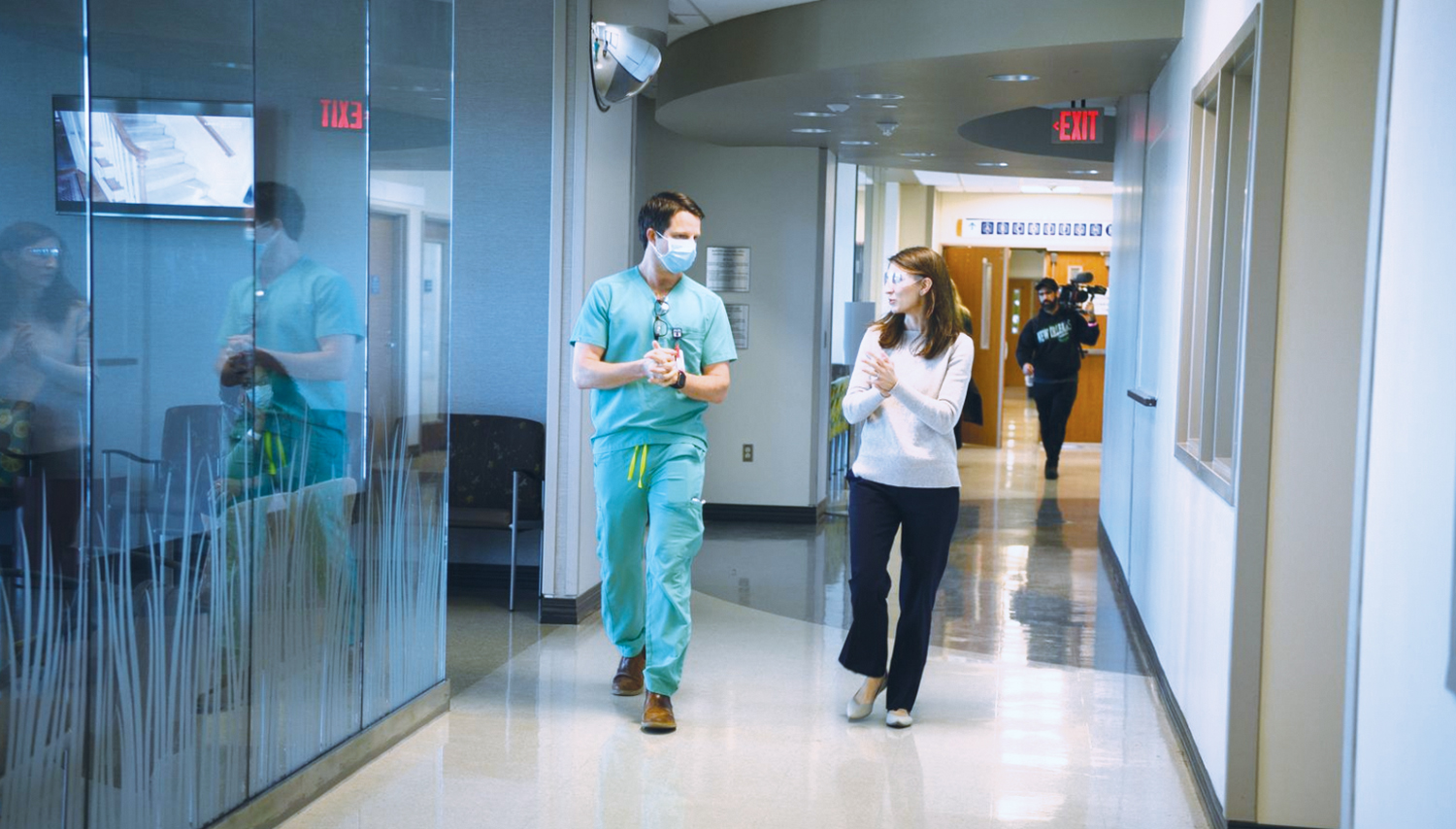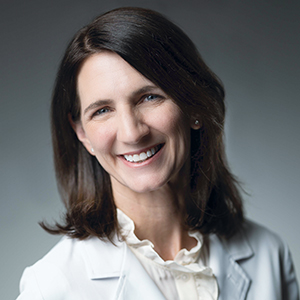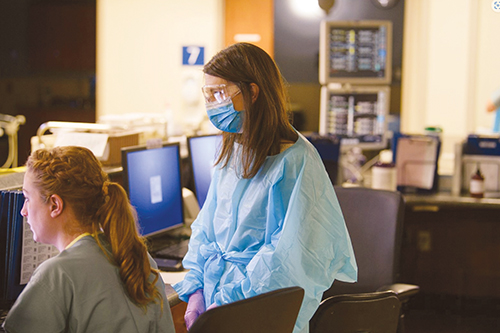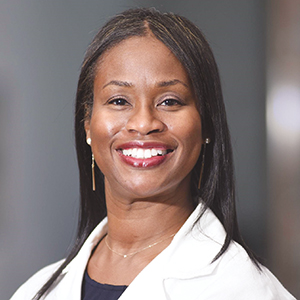
Health systems and facilities are facing formidable challenges when it comes to workforce development and retention: There is a huge and ever-increasing demand nationwide for health care workers of all stripes, but there are not enough candidates in the pipeline. At the same time, the educational requirements for all health care workers are increasing and changing rapidly, so educators must be attuned to the environment and nimble enough to respond.
To take on these challenges in an intentional and coordinated way, some health systems in recent years have been adding a new role to their executive suites: chief academic officer.
While the particulars of the role vary by system, in general, chief academic officers are responsible for making sure their health system and its educational partners have the right infrastructure and programming in place to prepare students well for the health care jobs of the future. These leaders seek to ensure that there is a full pipeline of job candidates who are equipped to meet these systems' strategic goals. They also help make sure that continuing education and professional development are available to their staff.

"We are asking, 'Is our learner plan lining up with our operational plan?'" said Dr. Catherine O'Neal, chief academic officer at Baton Rouge, Louisiana-based Franciscan Missionaries of Our Lady Health System. "We need to produce a workforce that meets our needs. We need to bring our hospitals' patient care goals to the start of our learner plans."
'You are a product of where you train'
O'Neal started as the system's first CAO in August. She most recently was chief medical officer of FMOLHS's Our Lady of the Lake Regional Medical Center in Baton Rouge, and she has been on the faculty of Louisiana State University Health Sciences Center since 2009.
She said it was E. J. Kuiper's idea to create the CAO role at FMOLHS. Prior to becoming FMOLHS's president and CEO in February 2024, Kuiper was a regional CEO at CommonSpirit Health, which has multiple academic medical centers and a CAO to help ensure that those facilities function cohesively within the system. Based on his experience at CommonSpirit Health, he knew the value of having an executive responsible for making sure that educational programs and curricula align with the system's strategic goals.
O'Neal interfaces with leaders of FMOLHS's academic medical center and its 10 hospitals to create "learner plans" for using their internal educational resources and their partnerships with all types of educational facilities — universities, colleges, trade schools and others — to achieve their strategic goals. They find ways to bolster local educational offerings, making sure the offerings are in line with medical best practices and standards.

Because "you are a product of where you train," O'Neal said, FMOLHS wants to make sure the training available in its markets is exemplary. She said there is a lot of cross-pollination of students between educational institutions and the practicum environment of the FMOLHS hospitals. Students who do rotations in a particular hospital often then pursue employment there, so she's monitoring how well such experiences are going, and whether students see those locations as good places to work.
O'Neal also seeks to partner with educational institutions in FMOLHS markets to ensure they are well-staffed, a very vexing problem, given faculty shortages nationwide. The health system and education partners also look to make sure that teachers are fully equipped, both in terms of their own credentials and in terms of the technology available for teaching, such as simulation environments. In some cases, she helps determine how FMOLHS can best make its clinicians available as preceptors and adjunct faculty, despite their busy schedules.
The metrics of success for her work have to do with whether FMOLHS is getting the best graduates as job candidates, recruiting skilled talent, keeping existing staff well-trained and retaining its workers.
'Physician leadership at the top'
Among the multiple CAOs employed at subsystems of Ascension is Dr. Christopher Trabue, CAO for Nashville, Tennessee-based Ascension Saint Thomas, chair of the department of clinical medical education for the University of Tennessee Health Science Center, and leader of the Saint Thomas Research Institute. He's been at Ascension Saint Thomas since his 2002 internal medicine residency. Just before becoming CAO last summer, he directed Ascension Saint Thomas' residency program.
Ascension Saint Thomas has 16 hospitals in middle Tennessee. In the past, the system partnered with Nashville's Vanderbilt University on physician education, but after the two organizations' trajectories diverged, Ascension Saint Thomas partnered with the University of Tennessee on a graduate medical education program focused on internal medicine. Trabue said Ascension Saint Thomas created the CAO role in 2018 because it realized after establishing the partnership that it "needed physician leadership at the top" of the residency and GME programs.
Trabue's primary focus is ensuring that the Ascension Saint Thomas — UT program has the infrastructure and faculty in place to provide comprehensive training that complies with GME regulations. Ultimately, the goal is to train future physicians for middle Tennessee.
Trabue said GME is concerningly underfunded, and it is difficult to find practicing clinicians at Ascension Saint Thomas to serve as practicum faculty, so he spends much of his time ensuring stable funding and staffing.
Chief concerns include maintaining the quality of the program and communicating with the residents and faculty on their satisfaction with it. Also, there is great competition for physicians in Saint Thomas' market, and it is difficult to attract internal medicine residents to hard-to-fill primary care practices. Trabue said Ascension Saint Thomas hopes the quality of its program will convince residents to stay with Ascension Saint Thomas and work in primary care when they go into practice.
"It is hard to recruit physicians, and we fall back on our ideals and our purpose," Trabue said, noting that the Catholic health mission is very attractive to young physicians.
Trabue measures his success in terms of physician recruitment and retention and how well Saint Thomas physicians rate on quality-of-care metrics.
'How do we come together as a system?'
When Dr. Nana Coleman became the first senior vice president for academic affairs and CAO of CommonSpirit Health in 2022, she had more than a dozen years of experience.

CommonSpirit Health, which has 137 hospitals and a vast outpatient network spanning 24 states, has several academic partnerships including with Baylor College of Medicine and Creighton University School of Medicine in Omaha, Nebraska, and Phoenix; as well as several other collaborative relationships.
In fact, many CommonSpirit Health hospitals are engaged in academic initiatives, including sponsorship of graduate medical education and research.
Coleman oversees this work in her role. When asked what it takes to make this work successful, Coleman said, "It has to do with systems thinking. It has to do with how can we be intentional in how we support and help our facilities and their partners to look at opportunities to realize their potential. It's a continual dialogue. It's about how we support these programs to attract the highest quality candidates. It's about how do we come together as one system?"
From a practical standpoint, Coleman's work includes ensuring strategic priorities are in place and that the academic programs across CommonSpirit Health's footprint line up with those priorities. She also makes sure the programs are in line with best practice standards, that they collect and use data and metrics to guide their work, that the people leading the programs are innovative and have a growth mindset, and that the learners are fully engaged and able to achieve their goals.
As with the Ascension and FMOLHS CAOs, provider recruitment, retention and development are top of mind for Coleman. And, she said, "all the efforts must prepare our learners and trainees to deliver the highest quality care possible."
As a learning health system, Coleman said, "CommonSpirit's biggest opportunity and the most exciting one is how we are leveraging the breadth and depth of our system to advance quality and excellence."
